When I was a child living on our sheep station in northern NSW, my parents would send my sister and me out onto the hillsides after rain with a bucket each and instructions to bring home a bucketful of mushrooms each. The reward for this was that we did not have to eat those mushrooms. I detested the smell of the great plates of mushrooms fried in butter that mum relished, and I hated the taste even more. I could not see why I should eat those mushrooms.

Mushrooms have been used in healthcare for thousands of years in Asia and other parts of the world. Every year we discover more reasons for eating this very easily accessible fungi. If you don’t eat mushrooms regularly, I hope this post encourages you to make a start. This knowledge certainly changed me.
Mushrooms and the gut
Edible mushrooms improve gut bacteria.
Mushrooms are rich in the type of carbohydrates that feed gut bacteria. Fibres like chitin, hemicellulose, beta- and αlpha – glucans, mannans, xylans and galactans make them prebiotics – the ‘food’ of gut bacteria. As prebiotics, mushrooms stimulate the growth of gut bacteria, bringing health benefits to the person.
Oyster and shiitake mushrooms have the most fibre at 2g per serving. A serving of mushrooms is 1 cup raw or half a cup cooked. One serving is only about 15 calories.
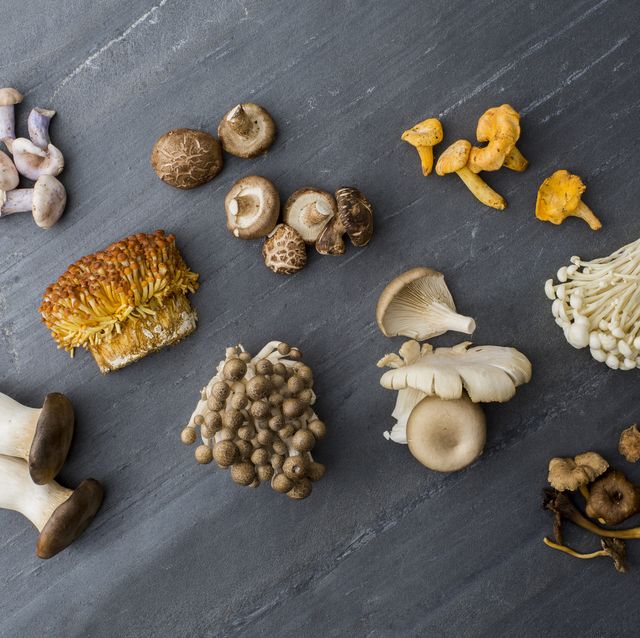
The mushrooms called turkey tail particularly improve gut bacteria balance, positively impacting immunity.
Your gut will thank you if you eat those mushrooms.
Mushrooms and your Immune System
Beta-glucans are one type of prebiotic fibre which enhance the activity of several different types of immune cells including natural killer cells. These white blood cells attack and destroy cancerous cells as well as those infected with viruses. Beta-glucans are high in several types of mushrooms.
Eating one serve of mushrooms daily (½ cup cooked) can also help to prevent respiratory infections by improving the production of protective mucus in the mouth, nose and throat.
Traditionally, mushrooms have been used for treating diseases from skin diseases to pandemic diseases like AIDS.
Mushrooms and Vitamin D
Vitamin D plays an important role in many aspects of human health, from bone fractures to prostate cancer, cardiovascular disease, neuromuscular problems, and diabetes.
Place mushrooms under ultraviolet light, including outside in direct sunlight, and they produce Vitamin D (the same as our skin). In other words, eating mushrooms can raise our own Vitamin D levels – without our getting sunburnt. A man in England experimented in the last decade with eating a large mushroom meal each night containing mushrooms left on his garage roof during the daytime. He raised his Vitamin D levels effectively for a pathology test.
A 2019 study showed that vitamin D2 from shiitake mushroom increased bone mineral density and trabecular bone structure of the femur bone. The mushroom increased the bioavailability of Vitamin D. Is this not reason enough why we should eat mushrooms?

Penn State University researchers found that a serving of white button mushrooms exposed to UV lamps for just 1 second could go from containing essentially no Vitamin D to an astonishing 824% of your daily value. The Vitamin D content of shiitake and oyster mushrooms will skyrocket to way over 1000 times what you need each day in the same time.
Laying any mushrooms on a windowsill with the gills upward for an hour or two in the warmest part of the day will cause them to produce significant quantities of Vitamin D in order to protect themselves from solar light.
Mushrooms and Cancer
A growing amount of research shows that using mushrooms as a complementary therapy during cancer treatment enhances survival outcomes for most cancer types. A 2012 meta-analysis of 13 clinical trials (of 2587 people), showed that PSK – a proteoglycan from Proteolus versicolor mushrooms improved cytotoxicity (effectiveness) of chemotherapy, reduced side-effects including fatigue, and improved survival times, as shown below.

Mushrooms inhibit an enzyme called ‘aromatase’ which produces estrogen. Estrogen is to cancer cells like petrol is to a fire – it causes them to flare up – to grow and divide rapidly and spread.
We can prevent the spread and growth of cancer by blocking the aromatase enzyme and mushrooms are an effective way to do just this.
The common white button mushroom and portobello mushrooms have strong anti-aromatase activity.

Mushrooms don’t just block the aromatase enzyme. They also contain specialized lectins (ABL) that recognize cancer cells and prevent the cells from growing and dividing.
White, shitake, cremini, portobello, oyster, maitake, and reishi mushrooms contain bioactive compounds that prevent the tumour from developing its own blood vessels system to bring it nutrients (anti-angiogenic).
Eating the equivalent of one button mushroom per day appears to decrease the risk of breast cancer by 64 per cent.
Mushrooms are one of the four main cancer-fighting foods. You can read about the other three <here>
Mushrooms and mental health
Chaga mushrooms reduce fatigue and inflammation. They have also been found to increase mental sharpness. They have high oxalate levels, however, which may mean they are not recommended for those with kidney problems.
Lion’s mane mushrooms may be protective against dementia, as well as reducing mild symptoms of anxiety and depression. One randomised controlled trial on a group of menopausal women using 2g of powdered mushroom daily over four weeks demonstrated reduced depression and anxiety. They also help repair nerve damage.
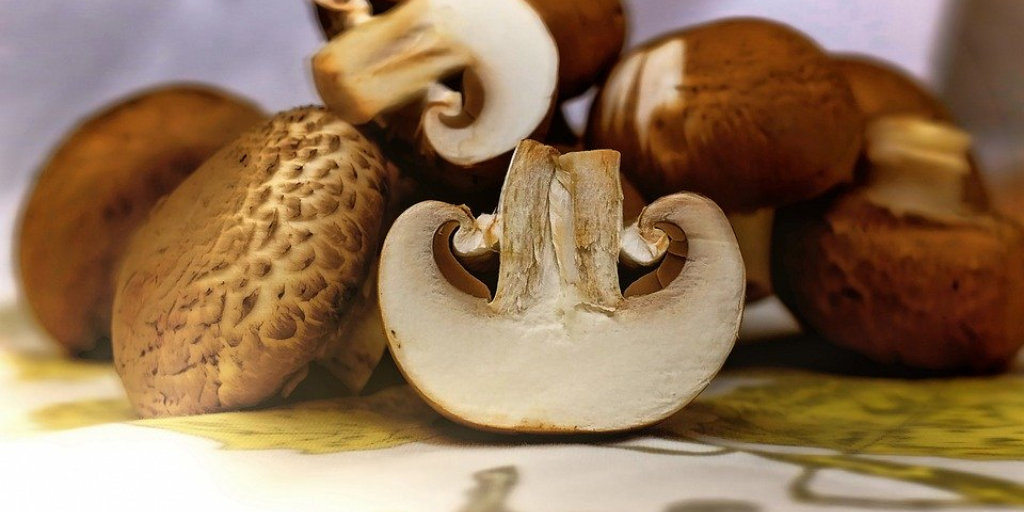
A double-blind placebo-controlled trial of 30 Japanese men and women from 50 to 80 years old diagnosed with mild cognitive impairment showed that Shitake mushrooms can help improve the condition. At weeks 8, 12 and 16, the Shitake-eating group showed significantly increased scores to the placebo group – and the Shitake group’s scores improved throughout the whole trial. 4 weeks after the 16-week trial ended, with no more eating of mushrooms, the Shitake group’s scores decreased significantly – showing they should have kept on eating mushrooms!
So why should we eat mushrooms?
In summary,
- mushrooms improve gut health by feeding different varieties of gut bacteria
- mental health can improve with mushroom consumption – especially anxiety and dementia.
- Mushrooms are powerful cancer fighters with much research supporting this.
- They can make stronger bones if exposed to Vitamin D in sunlight
- Improved immunity is another effect of eating mushrooms
What if I don’t like mushrooms?
Mushrooms contain the above benefits but are also full of vitamins – for almost no calories. Read about the vitamin content <here>. It’s worth finding a way to get them down – even if you don’t like them. Here are some alternative ways to consume mushrooms.

Mushroom powders are available in health food shops and supermarkets. These can be added to smoothies or soups by the teaspoon with no change in flavour.
Mushroom powders also come in supplement form. These are usually the specific types of mushrooms used in research to bring about specific results, such as cancer prevention, to slow cancer growth or to increase immunity. I can suggest different mushroom supplements suited for different conditions.
Mushroom recipes
As I have discovered the truly medicinal effects of mushrooms, I decided I should learn to like them. First I have found they must be fresh. An old slimy mushroom in the fridge does not taste good cooked! Dried mushrooms from the Asian section of the grocery store are rich and tasty after soaking, even if a bit rubbery.

Below you will find five mushroom recipes I really like. They include different ways of cooking mushrooms. And cooked is always best as a potentially toxic substance on mushrooms is rendered safe after light cooking. I hope they convert some readers from mushroom haters to mushroom lovers.
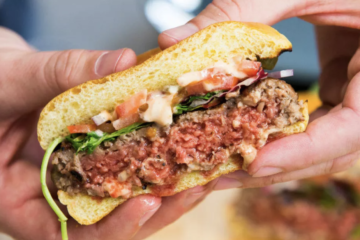
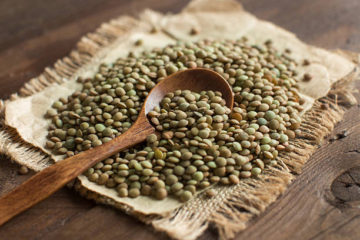
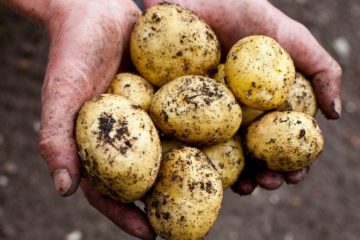
0 Comments